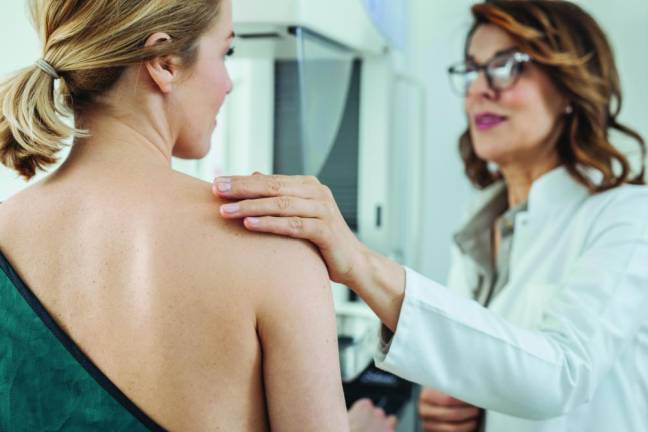Research shows that many chronic issues are preventable if you stay on top of scheduled visits and wellness checks.
Your physician will run regular screenings to track high blood pressure, diabetes, weight gain, vision problems and cancers, among others. Discuss any other concerns you may have based on how you’re feeling, and they may suggest other tests.
Here are some of the most common screenings you’ll undergo.
Women
Women between 30 and 65 should have Pap and HPV screenings every five years. Pap tests collect cells from the cervix in order to test for cervical cancer. Most of those who receive abnormal cervical results are either experiencing early changes that can be monitored or will be diagnosed with human papillomavirus infections, according to the National Cancer Institute. Routine exams will also discuss how you’re feeling in order to gauge the onset of depression.
Women should have yearly mammograms, since clinical breast exams save so many lives. Other tests or the frequency of testing may be impacted by any chronic diseases you may be suffering, or considered at high risk of contracting.
Men
Regular blood pressure screenings are recommended, in particular for those with readings that are higher than 120/80, according to the experts. Men 35 and older should be checked for lipid disorders, and those younger if they are at high risk of coronary artery disease. These fats include so-called “bad cholesterol,” or low density lipoproteins, as well as fatty acids known as triglycerides. High lipids are associated with diabetes, kidney and liver disease, and hypothyroidism.
Talk to your doctor about prostate cancer screenings, the timing of which can vary depending on health and age factors. You’ll either undergo a digital examination or a prostate-specific antigen test. Men between 65 and 75 who have smoked should get tested for abdominal aortic aneurysms, which when ruptured can lead to severe or even deadly internal bleeding.
Everyone
Adults should be checked for diabetes every three years, in particular if you have high sustained blood pressure of 135 over 80. Everyone should undergo regular baseline comprehensive vision exams. Colorectal cancer screenings are also recommended as we age. Discuss your risks with a health care provider, who will help you make informed decisions about these and other screenings. Your current medical condition and specific family history will play a role in deciding.
